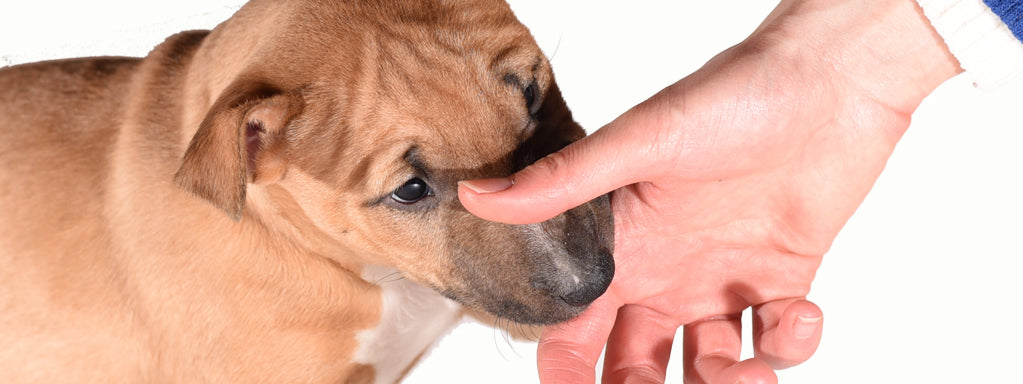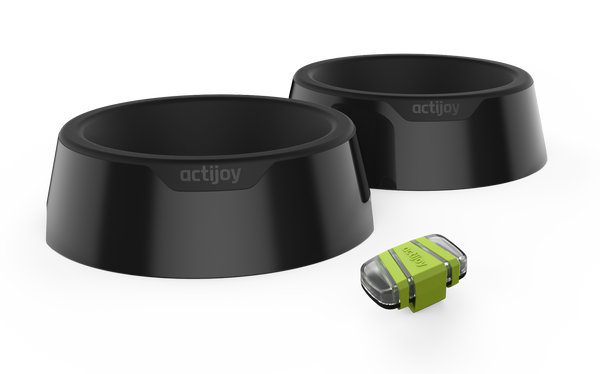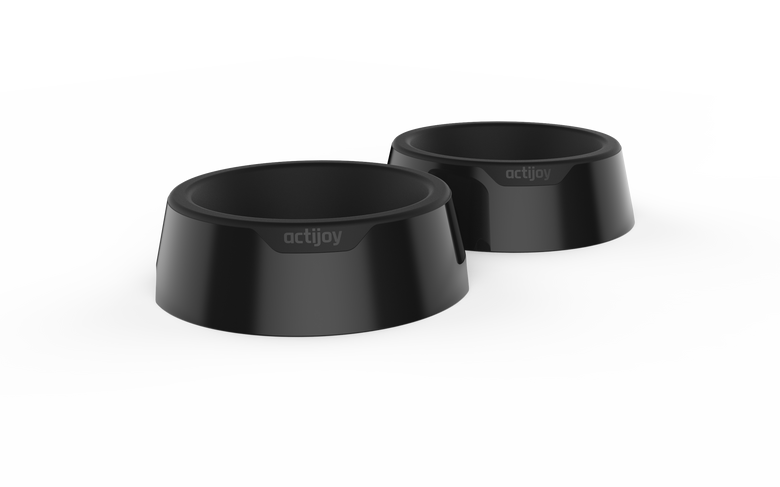Puppy Mouthing and Biting

In last week’s installment of puppy behavioral issues and how to solve them, we discussed puppy jumping. This week we will be discussing another common problem: puppy mouthing and biting.
Why do Puppies Bite?
Puppies bite, mouth, and nip because their mouths are one of the best ways for them to learn about and interact with the world. From the time they are born they learn that biting down on their mother leads to reward in the form of milk and nourishment. Later in life, biting is rewarded during play time, which reinforces this behavior.
Ways to Overcome the Problem
-
Provide Redirection
Whenever your puppy begins to mouth on your hand, arm, or leg, provide something appropriate for your puppy to chew on instead, such as a nylabone. Most puppy mouthing cannot be completely curbed, so it is important to provide appropriate outlets for this behavior.
-
Act Like a Dog
A second option is to teach your puppy right from wrong by behaving in a manner similar to other dogs. When your puppy bites or mouths, let out an audible yelp and then stop playing with your dog and walk away. In this way you are providing negative reinforcement: when your pet behaves inappropriately, the reward (you and your attention) is removed. After a few instances like this, your puppy will make the connection that mouthing or biting results in a lost playmate.
-
Reward Good Behavior
Another way to curb biting is with positive reinforcement. When your puppy bites down on your hand or finger, ignore your dog completely. However, the second that your puppy lets go on his or her own, provide a treat. While it may seem counterintuitive, your dog will come to understand that biting garners no reward (attention), while not biting leads to a tasty treat.
-
Avoid Roughhousing
If your puppy is especially bad about biting, nipping, and mouthing you should avoid roughhousing with your dog during play time. Playing rough can over-excite and confuse your pet, leading him or her to try and mimic your behavior by biting.
-
Be Consistent
Overall, it is important to be consistent. Do not allow your puppy to nibble on your hand in one instance, but then punish the behavior in a different context. Make sure everyone in your household uses the same method for correcting your puppy, or else his or her learning could be delayed.
Do you enjoy receiving tips about puppy behavior and other interesting articles? Be sure to sign up for our newsletter! Every week you will receive articles such as these, delivered directly to your inbox!
Please note: all dogs should be treated as individuals. The Actijoy™ blog is for educational and entertainment purposes only. In the case of emergency, always seek qualified healthcare from a local veterinarian or emergency facility. Actijoy™ blogs are not designed to treat, diagnose, or prescribe medication for your pet.



